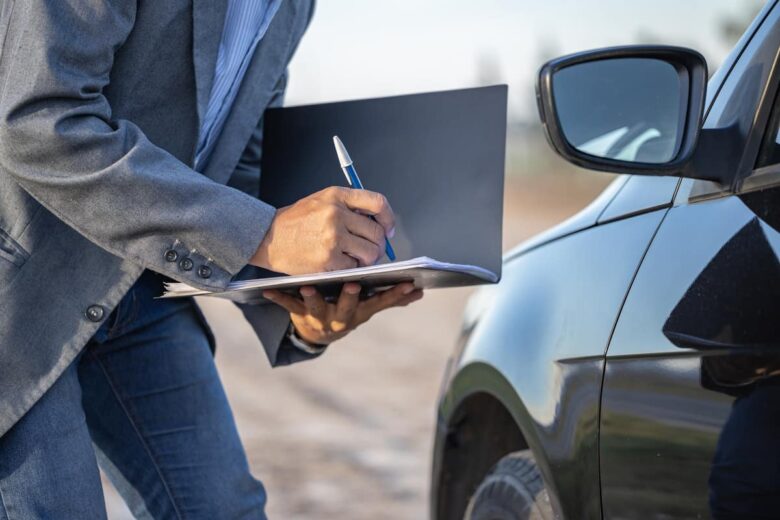Getting a vehicle history report is one of the most important things you can do when buying a used car. This detailed document will tell you everything you need to know about your car’s history, which can have a huge impact on your decision to buy a car. Here’s why vehicle history reports are so important and how they protect your investment.
1. Read a Vehicle History Report
A vehicle history report is a detailed record of a car’s past that comes from agencies such as insurance companies, state motor vehicle departments, and auto repair shops. The report includes important details about the car’s previous owners, accidents, mileage, ownership status, and more. This report helps people who are looking to buy a car learn more about what the car has been through before it came to them.
2. List Your Accident and Damage History
Getting a vehicle history report is a great way to learn more about any accidents or damage your car has had. Accidents can cause long-term damage to your car and often reveal pre-existing problems. The history report will list any reported incidents, the extent of the damage, and whether any major repairs have been performed. This information is important in determining the overall safety and reliability of your car.
3. Check the Title Status
Another important piece of information in the history report is the vehicle’s ownership status. The title shows who the legal owner of the car is and can show whether the car has a clean title or has been marked as salvaged, rebuilt, or flood-damaged. Buying a car with a bad title can cause legal and financial problems down the road. A vehicle history report will tell you about any potential problems with the vehicle before you buy it.
4. Look for Odometer Fraud
Odometer fraud is a major problem where people alter the odometer reading on a car to make it appear as if it has not been used as much as it has. This can lead to people paying more for a car with more damage than reported. A vehicle history report tracks a car’s odometer reading over time to show how many miles it has traveled. Mileage discrepancies can help you avoid buying a car with false mileage and alert you to potential fraud.
5. Review Service and Maintenance Records
To keep your car in good condition, it needs regular maintenance. Service and maintenance records are often part of the vehicle history report. They show how well the car has been maintained over its life. This information can reveal whether the car has had scheduled maintenance, such as oil changes and tire rotations, or whether it has not been serviced at all. A well-maintained car is likely to drive better and have fewer problems over time.
6. Stay Away from Lemon Cars
The term “lemon” refers to a car that has serious problems that make it unsafe, less useful, or less valuable. A vehicle history report may not list all lemons, but it can tell you a lot about the car’s history and reliability. For example, a large number of accident reports or extensive repairs can point to a deeper problem. By reviewing the history reports, you can make better choices and avoid buying cars that may have problems.
7. Secure Title and Liens
The history report identifies how many times the car has been owned before and looks for any liens that may have been placed on the car. The person who loaned you money can place a lien on your car until you pay off the loan. If there is a lien on the car, the seller must pay off the lien before selling the car. A vehicle history report will show you if any of these liens exist so that you don’t buy a car with unresolved financial claims.
8. Build Trust and Openness
Honesty is important when buying a used car. A vehicle history report tells buyers and sellers the history of a vehicle in an honest and unbiased way. This helps build trust between the two parties. It provides an accurate description of the car’s condition and reduces the chance of misunderstandings. For sellers, providing a vehicle history report can demonstrate honesty and make the transaction go more smoothly.
Conclusion
A vehicle history report is an important tool for anyone looking to buy a used car. It provides you with useful details about the car’s history, such as whether it has been involved in any accidents, ownership status, mileage accuracy, and maintenance records. History reports help buyers make informed decisions and avoid costly mistakes by revealing potential problems and verifying the car’s history. For a small fee, a vehicle history report can give you peace of mind and help you make informed decisions about your used car purchase.
FAQs
1. What does a vehicle history report include?
A vehicle history report typically includes information about the car’s previous owners, any accidents the car has been involved in, ownership status, mileage, service and maintenance records, and any reported thefts or recalls. In some cases, it may also indicate whether the car has been marked as salvage, rebuilt, or damaged by flooding.
2. How do you get a vehicle history report?
Several services, such as Carfax, AutoCheck, or the National Motor Vehicle Title Information System (NMVTIS), can provide you with reports on your car’s history. To obtain a report, you will need a vehicle identification number (VIN). Many parking garages also offer vehicle history reports for free or for a small fee.
3. Why is it important to look for accidents in a car history report?
It is important to look for accidents in your car history report because accidents can cause a lot of damage that may not be obvious at first. This damage can reduce the safety, usefulness, or value of the car. Knowing about past accidents can help you understand the overall condition of your car and avoid problems that may be hidden.
4. How do you know if the listed odometer reading is accurate?
A vehicle history report shows the number of miles a car has been driven over some time, based on odometer readings at different times, such as when the car was serviced or inspected. Any change or discrepancy in the odometer reading could indicate that the odometer has been tampered with. To detect possible fraud, it is important to look at these readings and see how closely they match the condition of the car.
5. What is a Named Mark and Why is it Important?
The condition or history of the car is indicated by the title mark, which may include the words “salvage,” “rebuilt,” or “submerged.” These marks are important because they can change the value, safety, and insurance of a car. People who are looking to buy a car should be aware that a name mark often means that the car has major problems or damage.




